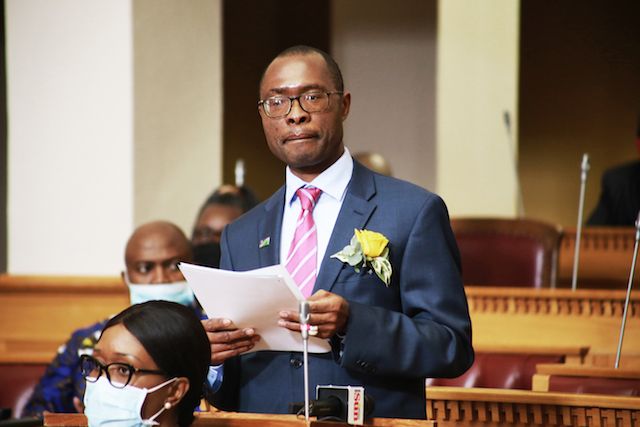Many Namibians have been fleeing their rural homes because of hunger, while governing officials continue to gamble with taxpayer money and other key public resources.
Health minister Kalumbi Shangula this week reported that more than 1 100 Namibians have died of malnutrition over the past four years, with most deaths in areas where people produce crops.
That number is expected to rise dramatically between July and September as the government blames “the drought”, a phenomenon that’s been common for decades but getting more severe by the year amid climate change.
This follows another bombshell from the prime minister’s office last week – that nearly half of Namibia’s population faces “food insecurity”. In short, 1,4 million Namibians don’t have enough to eat.
Katima Mulilo district hospital head Juliana Sanandwa says malnutrition is “the number-one cause of death” in the Zambezi region, where 67 children were recorded to have died over the past four years.
Shangula said: “The ministry is concerned by the fact that social problems spill over to overwhelm the health sector.”
The minister has a point: Widespread hunger and poverty become health problems because policymakers and implementers fail to deliver the basics.
It is a gamble with taxpayer funds that energy minister Tom Alweendo magically found N$365 million to defer an 8% electricity price increase to next year, on vice president Netumbo Nandi-Ndaitwah’s urging because the ruling party fears a backlash ahead of the elections.
For decades, the government has failed to deal with perennial problems such as electricity and water provision for the needy.
Yet officials have gambled public funds on pet projects and bailing out parastatals run into the ground by incompetent “comrades”.
A few months ago, the finance ministry provided a N$1,1 billion bailout to oil company Namcor, which found itself in technical insolvency because of mismanagement and dubious self-serving business activities.
Instead of panic vote-buying, the N$365 million could be used to set up solar electricity for up to 20 000 households, according to some experts.
Spending N$365 million on mini-grids will be sustainable compared to a one-year subsidy.
Mind you, NamPower gave themselves N$70 million in bonuses, no doubt paid for with electricity price hikes.
N$70 million should be spent to increase long-term energy supply.
Many studies show electricity and water are the leading variables with a positive impact on poverty.
Small wonder that the 2023 Population and Housing Census shows nearly one out of three Namibians have fled rural living.
About 20 years ago, 67% of the population lived in rural areas. Now it is 50-50, with more than one million Namibians calling shacks their home; the better life they sought in urban living was a mirage.
Such has been the policy and service delivery failure that even when money was spent on infrastructure, the motivation has been to line the pockets of politicians and their cronies rather than deliver to those in need.
It cost about N$6 billion to build the Neckartal Dam in southern Namibia. The dam has been full to capacity for years but no investment was made to get people involved in agriculture.
About N$7 billion was needlessly splurged on a fuel storage facility at Walvis Bay. The facility was built with borrowed money that is being repaid with fuel taxes amid a rising cost in prices amid theft of the fuel by Namcor employees and their friends.
The government has boasted about roads. Between Windhoek, Okahandja, Rehoboth, Walvis Bay, Swakopmund and Henties, anyone can see billions of dollars have been pumped into complex over-capacity carriageways, underpasses and bridges.
It is difficult not to conclude that over-investment in certain infrastructure is more for bribes than societal needs. Economically productive roads to tourism destinations have been neglected. Railway lines have collapsed to the point that heavy trucks destroy expensive roads.
It is sad but true that government leaders have neglected basic needs such as long-term food security while lining their pockets on the pretext of public tenders for development.
Thousands more Namibians are bound to die of hunger and poverty unless political leaders and their bureaucrats get serious and stop gambling with public resources for their short-term selfish interests.
Stay informed with The Namibian – your source for credible journalism. Get in-depth reporting and opinions for
only N$85 a month. Invest in journalism, invest in democracy –
Subscribe Now!










